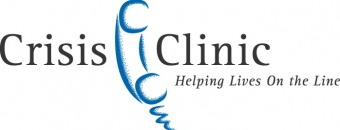- Education Topics
- Achievement Gap
- Alternative Education
- American Education Awards
- Assessment & Evaluation
- Education during COVID-19
- Education Economics
- Education Environment
- Education in the United States during COVID-19
- Education Issues
- Education Policy
- Education Psychology
- Education Scandals and Controversies
- Education Reform
- Education Theory
- Education Worldwide
- Educational Leadership
- Educational Philosophy
- Educational Research
- Educational Technology
- Federal Education Legislation
- Higher Education Worldwide
- Homeless Education
- Homeschooling in the United States
- Migrant Education
- Neglected/Deliquent Students
- Pedagogy
- Sociology of Education
- Special Needs
- National Directories
- After School Programs
- Alternative Schools
- The Arts
- At-Risk Students
- Camps
- Camp Services
- Colleges & Universities
- Counties
- Driving Schools
- Educational Businesses
- Financial Aid
- Higher Education
- International Programs
- Jewish Community Centers
- K-12 Schools
- Language Studies
- Libraries
- Organizations
- Preschools
- Professional Development
- Prom Services
- School Assemblies
- School Districts
- School Field Trips
- School Health
- School Supplies
- School Travel
- School Vendors
- Schools Worldwide
- Special Education
- Special Needs
- Study Abroad
- Teaching Abroad
- Volunteer Programs
- Youth Sports
- For Schools
- Academic Standards
- Assembly Programs
- Blue Ribbon Schools Program
- Educational Accreditation
- Educational Television Channels
- Education in the United States
- History of Education in the United States
- Reading Education in the U.S.
- School Grades
- School Meal Programs
- School Types
- School Uniforms
- Special Education in the United States
- Systems of Formal Education
- U.S. Education Legislation
- For Teachers
- Academic Dishonesty
- Childcare State Licensing Requirements
- Classroom Management
- Education Subjects
- Educational Practices
- Interdisciplinary Teaching
- Job and Interview Tips
- Lesson Plans | Grades
- Professional Development
- State Curriculum Standards
- Substitute Teaching
- Teacher Salary
- Teacher Training Programs
- Teaching Methods
- Training and Certification
- For Students
- Academic Competitions
- Admissions Testing
- At-Risk Students
- Career Planning
- College Admissions
- Drivers License
- Educational Programs
- Educational Television
- High School Dropouts
- Higher Education
- School Health
- Senior Proms
- Sex Education
- Standardized Testing
- Student Financial Aid
- Student Television Stations
- Summer Learning Loss
Crisis Clinic

Basic Information
Address: 9725 3rd Ave Northeast
Suite 300
Seattle, Washington 98115
Phone Number: 206.461.3210 ext. 697
Fax Number: 206.461.8368
Director: Brannon Mark, Volunteer Services Manager
Action Shots
* There are currently no photos associated with this listing.
Additional Information
Causes Served: Crisis Intervention
Background Check: Yes
Population Served: King County Residents
Ages for Volunteer: 21+
Hours of Service: TBD
Minimum Hours Required: 4.5 weekly
Days of Service: TBD
Mission Statement:
As a non-profit organization, we offer an array of support services available to everyone in King County. Our objective is to provide immediate and confidential assistance, including information and linkage to community resources, for people in emotional distress and in need of help.
Program History:
In August 1963, a 12-year old girl was stabbed by a troubled letter carrier. After the attack, authorities learned that the assailant had sought help to curb aggressive impulses. He’d also mentioned his feelings to several people before the incident, but failed to find the treatment that could have prevented it. The girl recovered, but her parents believed the tragedy might have been avoided had the assailant been able to turn to someone for help in managing his anger. Some kind of service was needed to help people in emotional distress cope with life’s sometimes overwhelming difficulties.
With a broad array of community support, they were able to fill that gap in King County’s mental health services. They founded a safe, confidential telephone service for people in emotional distress to call and receive immediate, caring assistance from a skilled volunteer: Crisis Clinic.
Seattle’s telephone directory first listed Crisis Clinic’s number in March 1964. Initially, volunteers and members of the Board of Trustees answered calls at home and at work. The first Crisis Clinic office opened in May 1964 with a part-time director, two telephones, a typewriter, a desk and two chairs. Through the years, Crisis Clinic has continued to expand and evolve in response to the needs of the community. Today the agency has five major areas of work: phone services, volunteer services, community and volunteer training, the resource center and fund development.
Events:
Crisis Clinic offers five Phone Worker trainings a year, Orientation and Screening is a required step in the application process and is scheduled to occur 1-2 weeks prior to training. The May/June Session's Orientation and Screening is scheduled for Tuesday May 10th and Wednesday May 11th from 6pm-9pm. The Orientation and Screening for the August Training is scheduled for Tuesday July 19th and Thursday July 21st.
Additional Information:
Crisis Phone Workers volunteer to serve on one 4 ½ shift a week for twelve months after successful completion of 60 hours of specialized training. Phone Worker Training is offered four times a year on Tuesday evenings and Saturdays. The Summer Intensive Training has Monday - Thursday classes the first and third week of August.

